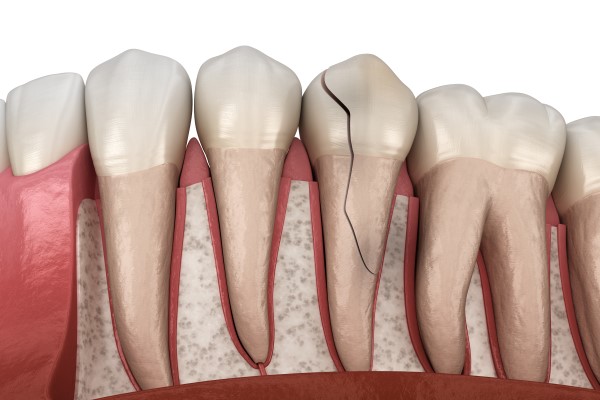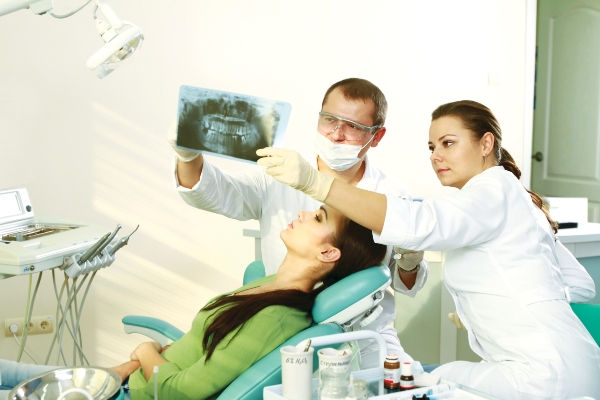Get a Broken Tooth Treated to Avoid Complications

Fixing a broken tooth right away is important. This dental damage may seem like nothing more than a cosmetic problem, but it can lead to terrible consequences. Seeing a dentist sooner rather than later can provide immediate relief. If you want to find out the treatments for a broken tooth and its complications, here are the details.
Broken tooth treatments
Dental damage can weaken the enamel layer of the tooth. In some cases, the injury exposes the dentin, making the tooth painful and sensitive. That is why immediate treatment is necessary. The dentist can offer many options to correct the damaged tooth. The following are the most common ways to treat a broken tooth.
Veneers
This treatment involves placing thin porcelain veneers to cover the front side of the affected tooth. This popular cosmetic solution covers the damage. It also protects and strengthens the tooth. Getting custom veneers takes one to two dental visits.
Dental crown
The dentist will recommend this treatment if a large part of the tooth has broken off, exposing much of the dentin. The dentist will need to examine the tooth if the damage has reached the jawbone. If it has, the dentist will extract the tooth and replace the natural tooth with an artificial one. The dentist will perform root canal treatment if the damage has only reached the pulp. Then, a custom dental crown will go over the treated tooth. It will take two to three visits to complete the treatment.
Dental bonding
This treatment is the fastest treatment for a broken tooth. The dentist will use a composite material to cover the damaged area. This will improve the tooth’s appearance right away. A curing light will harden the bonded area. Then, the dentist will shape and polish it. This treatment can finish in one dental visit.
Dental implant
This is a long procedure for a severely broken tooth. The dentist will recommend this procedure if the damage reaches the jawbone. Removing the tooth will be necessary. Then, the dentist will place a titanium dental rod. This will replace the dental root. Then, the artificial tooth will attach to the rod, completing the dental tooth replacement.
Factors affecting the broken tooth treatment
The dentist will examine the affected tooth first. Choosing the treatment will depend on different factors. The severity of the tooth damage and the patient’s general health are top considerations. Insurance or budget also plays a role in determining the right type of treatment. The dentist will also consider the patient’s aesthetic preference. The last one would be the patient’s tolerance for dental work.
Possible complications from a broken tooth
Perhaps most noticeably, a chipped or cracked tooth can be very unsightly, especially if it is located toward the front of the mouth. Teeth that suffer this type of injury will likely discolor in the future. Many people are motivated to have a broken tooth fixed just for appearance’s sake. However, dental health issues can also arise from this type of tooth damage.
Discomfort and sensitivity
Tooth damage hurts, especially if it is due to trauma or sudden impact. However, the pain may not subside over time. For some people, the pain and sensitivity continue to worsen until it is treated. Chronic or severe dental pain can make it difficult to perform everyday tasks, inhibits restful sleep, and can lessen the patient’s overall quality of life.
Tooth decay
A broken tooth weakens the enamel. This also deprives the tooth of a complete protective shield around its internal tissues. Bacteria can now penetrate much more easily than before, and decay can occur at a rapid pace. Decay can also worsen the pain caused by the initial damage and can even spread to nearby teeth, resulting in more dental work down the road.
Infections
The passageways for bacteria are now wide open if a dental chip or crack is severe. Patients can develop a dental infection. This type of problem may require a root canal at a minimum. In severe cases, it could lead to an abscessed tooth, which could go through an extraction. Infections are serious no matter where they occur in the body and can lead to dangerous complications in a short period.
Having a broken tooth treatment can improve your dental and general health
A broken tooth is a serious injury and should be treated right away to maintain good dental health. Otherwise, you could be dealing with difficult but preventable side effects that could impact the beauty and function of your smile. There are many treatment options available. Your dentist can help you choose which treatment is right for your needs.
Are you considering getting treatment for a broken tooth in the Philadelphia area? Get more information at https://frankforddentalcare.com.
Check out what others are saying about our dental services on Yelp: Dental Restorations in Philadelphia, PA.
Recent Posts
A broken tooth can be a stressful and uncomfortable experience, requiring prompt attention to prevent further damage or complications. Whether caused by an accident, biting into something hard, or untreated decay, addressing a broken tooth quickly is crucial to maintaining oral health. Understanding the steps to take after experiencing a broken tooth can help preserve…
A broken tooth is a common dental issue that fills most people with dread, especially when the crack is near the front of the mouth. Front teeth fractures are quite common among children, teenagers, and young adults. Fortunately, a dentist can recommend various repair or replacement options for damaged front teeth to help patients resume…
Dental restorations have been used for thousands of years. In fact, a 2012 article published by The New York Times details the discovery of a 6,500-year-old human jawbone. Considered the earliest evidence of dental fillings, it had beeswax in one tooth, which researchers believe was to ease the pain of a crack. These days, restorations…
Crowns are commonly used in dental restorations. A crown is a cap shaped like a tooth but hollow in the middle. It fits over a natural tooth that has to be prepared first. Depending on the issue it is correcting, a crown can be used by itself or as a component of another restoration technique.Teeth…


